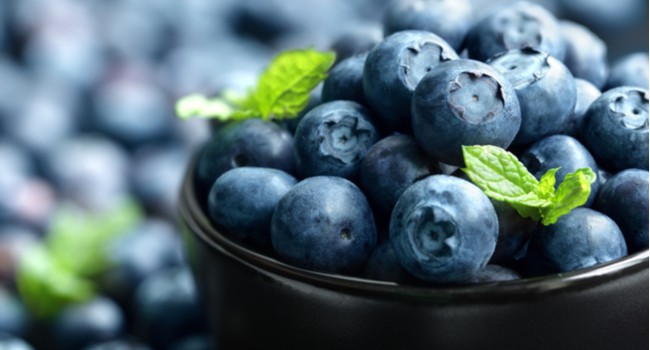Your guide to superfoods: What are they, and which ones will you be eating in 2020?

Superfoods are big business. With trendy new foodstuffs declared ‘super’ each year, often with highly attractive health claims and celebrity endorsements attached, they can appear too good to pass up.
But what are superfoods? Do they even exist? And which ones are we all going to be eating in 2020?
What are superfoods?
A superfood is any food rich in nutrients, considered especially good for our health and wellbeing. Everything from onions and broccoli, to oily fish and the bright green ‘super algae’ chlorella, have been labelled a superfood.
They often come with impressive health claims – from weight loss and anti-aging, to shinier hair and cancer prevention. But should we believe these claims?
Do superfoods really exist?
Despite the continuing trend for superfood cookbooks and celebrity testimonials, the term is widely unrecognised by experts, dieticians and nutrition scientists.
The EU banned the use of the term on food packaging in 2007, unless backed up by a specific authorised health claim. The NHS is equally clear, recommending a balanced diet containing foods from all four main food groups, whilst dismissing the concept of ‘miracle foods’.
But some foods are better for us than others.
So, what superfood trends look set to entice us this year? What are their purported health benefits? And which ones can we most easily incorporate into a balanced diet?
Keep reading for answers to these questions and more as we highlight five superfoods likely to be on your shopping list in 2020.
Top 5 superfoods you’ll be eating this year
1. Goji berries
A perennial favourite on superfood lists, goji berries are high in antioxidants, minerals, and vitamins A and C. Amongst the health benefit claims made on their behalf are cancer prevention (antioxidants are believed to slow tumour growth), improved blood sugar control and weight loss.
Incorporated into a balanced diet, and as part of your five-a-day, goji berries could make a novel but expensive change.
If you need a recipe idea, try the goji berry and pistachio granola bars available here.
2. Bone broth
Bone broth is produced by boiling the bones, meat and connective tissue of grass-fed cattle to produce a stock. Stocks have long been a part of many cultures’ traditional cuisine (not to mention a staple of our Palaeolithic ancestors).
Skip to the middle of the 2010s and the soup-like stock, now renamed ‘bone broth’, became a surprise hit, with specialist broth bars opening in New York and London.
It’s high in protein, as well as the vitamins and minerals essential for bone health. It also contains collagen and keratin, both of which are good for the skin and hair – strengthening roots, removing greys and allegedly adding shine.
Advocates are quick to point out the difference between a stock and a bone broth, so if you’re keen to discover the difference, try the Hemsley and Hemsley recipe available here.
3. Kefir
Kefir (or kephir), is a fermented milk drink like a thin yoghurt, made from kefir grains.
Originally from the Northern Caucasus, kefir grains are grain-like colonies of yeast and lactic acid bacteria that are added to milk to make yoghurt.
Kefir is a probiotic – full of the ‘good’ bacteria that aid digestion. It’s also packed with nutrients and said to have antibacterial properties.
Lactic acid bacteria in the grains break down lactic acid, which can make it suitable for those with lactose intolerance. Although usually made from cow or goat’s milk, it can also be made from non-dairy milk.
Add blueberries or blackberries to a kefir breakfast smoothie and you’ll get a superfood-filled breakfast to set you up for the day. Read the recipe here.
4. Rocket
Greens are an important part of any balanced and healthy diet. Along with broccoli and kale, rocket has been added to the superfoods list.
High in vitamins C and K, rocket can promote a healthy heart, bones and skin. It also – along with other cruciferous vegetables – contains glucosinolates, which may help to protect against cancer.
In terms of cost, availability and simplicity, rocket is an easy superfood to add to your diet. Make it one of your five a day or combine a rocket salad with our final superfood choice, to get a superfood boost. Try Jamie Oliver’s ‘Scrummy warm rocket salad’ recipe here.
5. Sardines
The NHS recommends one meal of oily fish a week, so why not make it sardines?
Sardines are a good source of lean protein, as well as being rich in omega-3 fats. According to the British Heart Foundation, both white and oily fish – when eaten as part of a Mediterranean-style diet – can reduce the risk of developing type 2 diabetes, high blood pressure and raised cholesterol. A diet of bread, fruit and vegetables, fish and unsaturated fat spreads, can lower the risk of heart disease, cancer, and arthritis.
Combine a warm rocket salad with sardines, or check out the BBC Good Food list available here, for not one, but 22 sardine recipes.
Request a callback
Enter your details below and a member of our team will be in touch.



